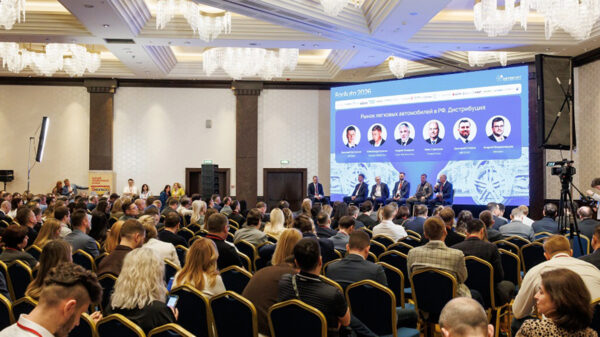 Chancellor Olaf Scholz previously blamed Germany's economic stagnation on decades of «timid bureaucracy.» Photo: CLEMENS BILAN/Shutterstock
Chancellor Olaf Scholz previously blamed Germany's economic stagnation on decades of «timid bureaucracy.» Photo: CLEMENS BILAN/Shutterstock
Germany's downturn will be deeper than previously feared, economists warn, as the industrial power struggles with an energy crisis and disrupted supply chains.
Despite forecasts showing the country will avoid recession, a group of influential economic institutions have told the German government that stagnation will continue.
The latest forecasts show Germany's GDP will fall 0.6% this year, a significant drop from the 0.3% growth rate previously forecast in the spring.
The year began with a winter recession in Germany, which ended with the economy remaining flat for the three months to June.
It is now contracting again, with a contraction of 0.4% expected in the third quarter, although the country will avoid recession if it meets forecasts for growth of 0.2% in the final three months of the year.
Oliver Holtemoeller of the Halle Institute for Economic Research said the recovery from the energy crisis had been painfully weak.
He said: “The most important reason for this revision is that industry and private consumption are recovering more slowly than we expected in the spring.”
0909 Industrial production is declining in Germany
Next year growth will reassert itself.
Carsten Brzeski, an economist at ING, said there was «resonant» evidence that Germany had once again become the «sick man of the world». Europe.»
He said: «Cyclical headwinds such as the ongoing impact of European Central Bank monetary tightening and high inflation — plus a stuttering Chinese economy — are colliding with structural challenges such as the energy transition and shifts in global economy, as well as the lack of investment in digitalization, infrastructure and education.
“To a large extent, Germany's problems are domestic. Disagreements in the supply chain following the pandemic, the war in Ukraine and the energy crisis have only exposed these structural weaknesses. These shortcomings are the downside of fiscal austerity and poor policy preferences over the past decade.»
Falling inflation in Germany
One positive sign is that inflation in Germany is falling rapidly, which will ease pressure on households.
Consumer prices rose 4.5% this month compared with the same period last year, according to official estimates from the Federal Statistics Agency.
This is a sharp slowdown in inflation from August's 6.1% and represents slowest growth. in prices since February 2022, when Russia invaded Ukraine.
Energy prices rose 1 percent, compared with an annual rise of 8.3 percent recorded last month.
Food price inflation slowed from 9 percent to 7.5 percent, while prices of goods and services fell to 5 percent and 4 percent respectively, indicating a widespread trend. lower price pressures.
At the same time, surveys of business and consumer confidence conducted by the European Commission showed a fifth consecutive decline in sentiment in the eurozone.
A key indicator of economic sentiment fell. fell from 93.6 to 93.3, the lowest level since the pandemic. The long-term index averages 100.
Rory Fennessy of Oxford Economics said this «could presage a contraction» for the eurozone economy in the third quarter.
He said: «Continued industrial weakness and slowdown service growth means the eurozone economy is likely to contract in the third quarter, albeit with wide variation across countries.
“Even if the eurozone avoids a contraction, growth in the second half will still be incredibly weak.”























































Свежие комментарии